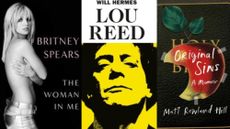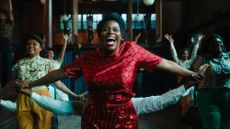What caused the London riots? 5 theories
Mob violence and rampant looting in Britain have led to more than 1,000 arrests this week, as a rattled nation searches for answers
While 16,000 police officers managed to keep London (mostly) calm Tuesday night, the riots and looting that have swept through England's capital since Saturday are now moving north to cities like Manchester. Britons are grappling with how a peaceful protest over the police killing of 29-year-old Mark Duggan, an Afro-Carribean resident of the London suburb Tottenham, turned into a nationwide rampage of firebombing and looting youths. What really sparked Britain's worst rioting in at least a generation? Here, five theories:
1. Social and economic inequality
"Britain is less equal, in wages, wealth, and life chances, than at any time since" the last major financial upheaval, the great crash of 1929, says Mary Riddell in Britain's Telegraph. It's almost poetic that when the riots broke out, the same ruling class that failed this angry "lost generation" was vacationing abroad, "parked on sun-loungers, as London burned." Indeed, the cause of this week's unrest mirrors that of the riots of 1981 and 1990, says Steve Hynd at Newshoggers: "Brutal cuts, forced austerity," and the shakedown of "the common people to finance corporate giveaways."
Subscribe
The Week Magazine
Subscribe for less than $2.50 per week with digital access and free home delivery.
2. A weak police response
This outbreak of "mass criminality" was "unleashed by an insufficiently tough police reaction to the initial incident," says Andrew Sullivan at The Daily Beast. Because the cops didn't crack down right away, it essentially "gave permission for dozens of sheer thugs to come and loot and burn the neighborhood." When a mob sees that police can't control a situation, it "leads to a sort of adrenalin-fueled euphoria," agrees criminologist John Pitts, as quoted by Britain's Guardian.
3. High rates of youth unemployment
Given the scope and coordination of the rioting, "this is clearly an event with far deeper causes than simple random hooliganism," says Doug Saunders in Canada's Globe and Mail. Most of the looters and vandals are under 20, and they're destroying the same low-income neighborhoods they live in, where public housing is thick and job opportunities thin. With few prospects, these kids clearly "had nothing else to do with themselves, and no reason to fear or feel responsible for the consequences of their actions."
4. Rank opportunism
This isn't a political uprising by the downtrodden poor, it's an outbreak of "nihilistic behavior" by "a mollycoddled mob" of social ingrates robbing their own community, says Brendan O'Neill at Spiked. In fact, what has set these riots apart from earlier ones is the deliberate, eerily consumer-like looting. And that has greatly upped the damages, says sociologist Paul Bagguley. Whereas all riots loosen inhibitions, "looting tends to involve a wider range of people — children, women, older people — because it does not involve physical violence." And as more people get involved, more damage is done.
5. Racial profiling
To anyone who's asked them, the rioters have "made it more than abundantly clear what their motives are," says Richard Seymour at Lenin's Tomb: "Most basically, [they're] repaying years of police mistreatment." That's especially true in "communities where there is a relatively high percentage of black people," says David Winnick, a member of Parliament, as quoted by The Guardian. The anger black people feel at being stopped and searched more often, combined with "continuing deprivation, growing unemployment, a feeling of lack of opportunity" makes for a "pretty toxic mix."
Sign up to our 10 Things You Need to Know Today newsletter
A free daily digest of the biggest news stories of the day - and the best features from our website
-
 Has the international pandemic treaty lost its way?
Has the international pandemic treaty lost its way?Under The Radar 'Wrangling and disinformation' mean plans for a global preparedness agreement are close to crumbling
By Chas Newkey-Burden, The Week UK Published
-
 Best memoirs and biographies to read in 2024
Best memoirs and biographies to read in 2024The Week Recommends Dive into some of the most compelling life stories – from Britney Spears to Lou Reed
By The Week Staff Published
-
 The Color Purple review: Alice Walker's epistolary novel gets the musical treatment
The Color Purple review: Alice Walker's epistolary novel gets the musical treatmentThe Week Recommends Blitz Bazawule's 'all-singing, all-sobbing weepie' is filled with sequins and some 'uproarious choreography'
By The Week Staff Published


